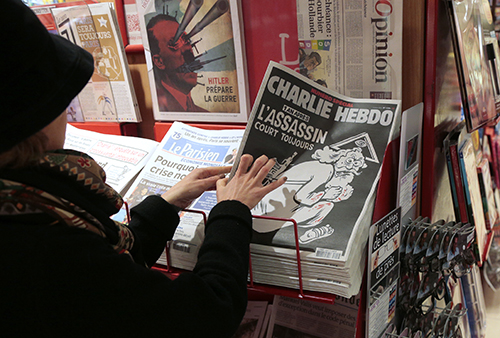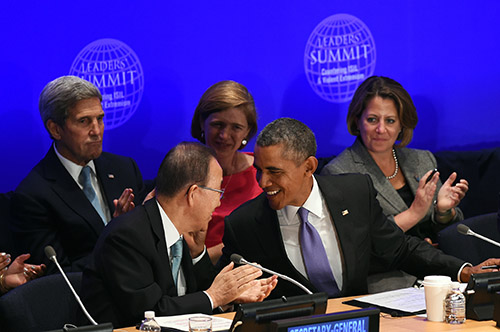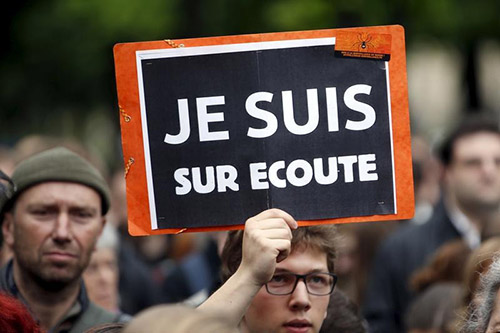
We’re live from Taipei! Please don’t tell China’s censors
Typically, news organizations like to promote original reporting. When an outlet covers a breaking news event at the time and from the place where the event is happening, they want their audience to know. However, for Chinese commercial media that covered this weekend’s presidential election in Taiwan, this was apparently not the case.

One year after Charlie Hebdo, will press freedom become victim of war on terror?
Who would have thought that France would top the list of most deadly countries for the press in 2015, second only to Syria? The massacre of eight cartoonists and journalists by Islamic militants at the Paris office of the satirical magazine Charlie Hebdo last January was one of the deadliest attacks against the press since…
CPJ urges South Africa to revise cybercrime bill that limits press freedom
New York, December 10, 2015–The Committee to Protect Journalists calls on the South African government to revise provisions in the proposed Cybercrimes and Cybersecurity Bill that would limit journalists’ ability to work. Under the bill, journalists and members of the public could be prosecuted for possessing or disclosing state information, reports said.
Two editors at critical magazine Nokta arrested in Turkey for election coverage
Istanbul, November 4, 2015–The Committee to Protect Journalists condemns the arrest of two editors in Istanbul Monday and calls on authorities to immediately release them. Cevheri Güven and Murat Çapan, of the privately owned weekly magazine Nokta, were arrested in their newsroom over a front-page cover on the results of Turkey’s election, according to reports.

Privatizing censorship in fight against extremism is risk to press freedom
“We’re stepping up our efforts to discredit ISIL’s propaganda, especially online,” President Barack Obama told delegates at the Leaders’ Summit on Countering Violent Extremism last month. The social media counter-offensive comes amid U.N. reports of a 70 percent increase in what it terms “foreign terrorist fighters”–citizens of U.N. member states who have left to join…
Save Crypto: CPJ joins call for Obama to back strong encryption
The Committee to Protect Journalists has signed a petition organized by digital rights groups Access and the Electronic Frontier Foundation, urging President Barack Obama to publicly commit the U.S. to a policy of supporting strong encryption. Since the Save Crypto petition’s launch on September 29, it has gathered nearly 18,000 signatures, including about 30 from…

CPJ joins call to oppose draft surveillance law in France
The Committee to Protect Journalists has joined 30 other press freedom and digital rights groups in calling on the French government to reject a draft law on surveillance. The open letter, submitted yesterday to members of parliament, warns against giving authorities greater powers to spy on communications.
Internet gateway plan threatens online freedoms in Thailand
Bangkok, September 29, 2015–An initiative in Thailand to create a single government-controlled gateway for international Internet traffic represents a clear danger to online freedoms, the Committee to Protect Journalists said in a statement today. CPJ calls on Prime Minister Prayuth Chan-ocha to drop the proposed plan and stop harassing journalists and social media users.